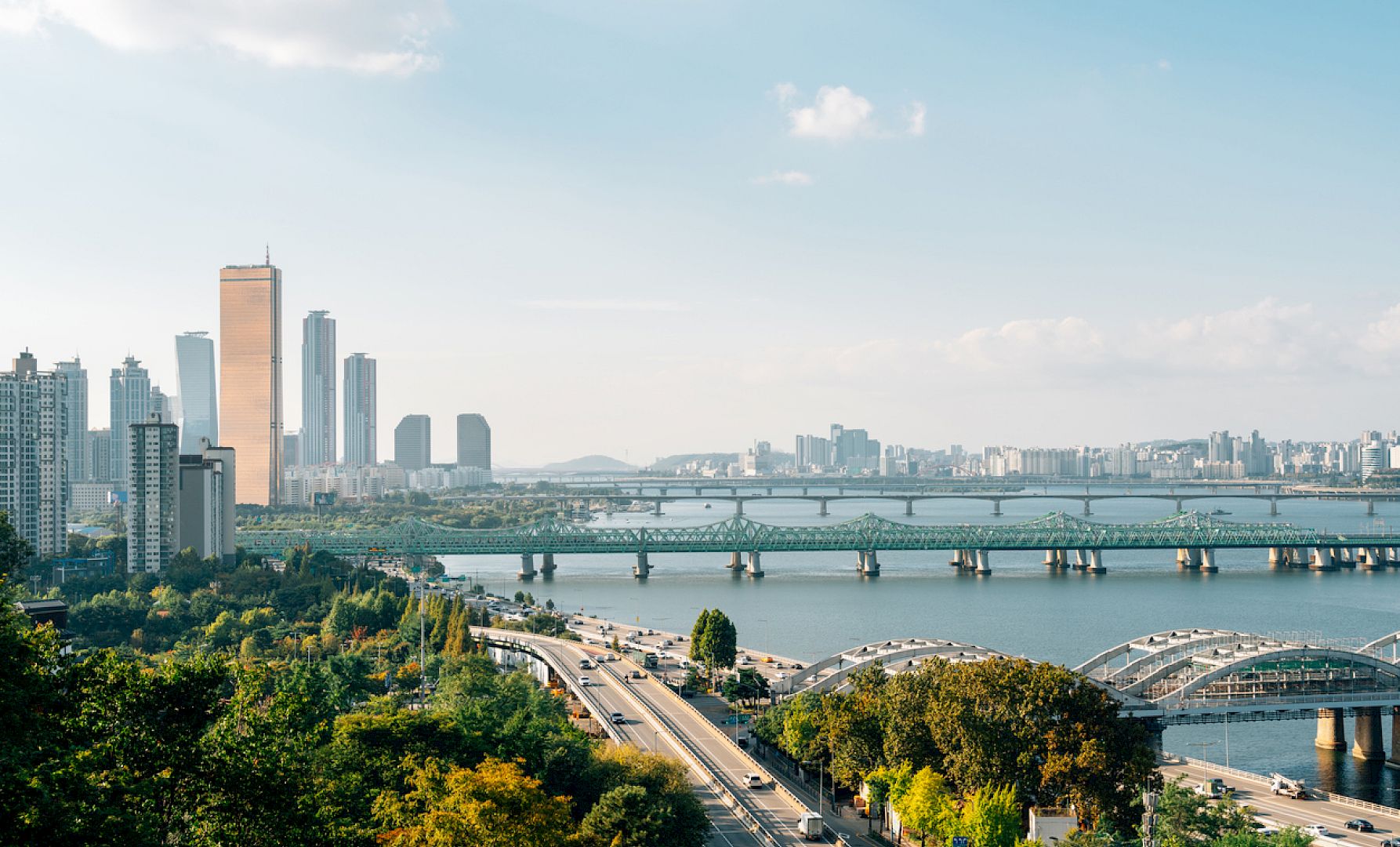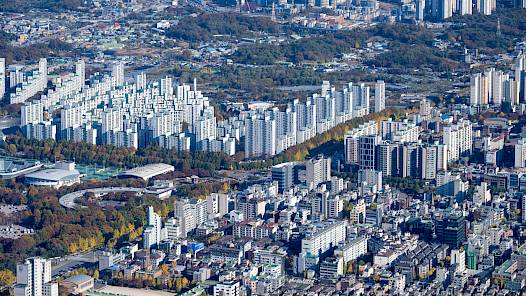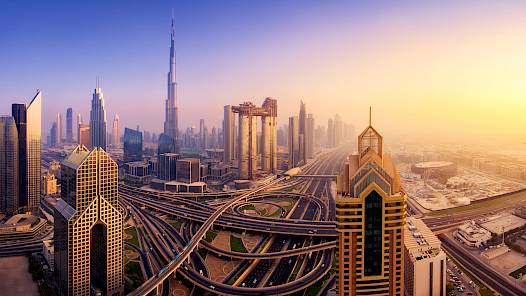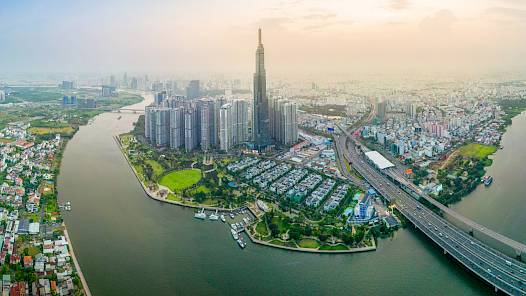No time to waste – A collaborative approach to boost South Korea’s competitiveness in global sustainability ecosystem
5 July 2024 — South Korea's conglomerate-driven, top-down economic structure faces challenges in the global shift toward sustainability, necessitating agile and drastic measures to improve environmental impact. To achieve long-term competitiveness, collective efforts are needed from the domestic private sector, the government, and foreign technical partners.

Problem
South Korea's goal of carbon neutrality by 2050 and significant emission reductions by 2030 faces major challenges due to lenient regulations and reluctance from key domestic conglomerates to invest in costly projects. The interdependent nature of the economy exacerbates this reluctance, slowing overall progress.
Why it happens?
South Korea's unclear regulatory framework on decarbonization, with many loopholes and indecisive actions, fails to send a strong message to corporate stakeholders. The interdependence between conglomerates and SMEs further limits independent sustainability efforts, posing a collective risk to the country's business ecosystem amid the global shift towards decarbonization.
Solution
Korean conglomerates must prioritize sustainability and emission reductions for global competitiveness. SMEs should enhance their global presence with R&D aligned to sustainability goals. The government should support sustainability initiatives for all companies with consistent policies. Foreign firms can exploit sustainability gaps in Korean conglomerates' supply chains.
Download this post (PDF)
South Korea is renowned for its diverse array of global businesses, characterized by a conglomerate system where family-founded enterprises have excelled across generations in industries ranging from heavy machinery to semiconductors. The country’s strong economy has thrived on an import-export-centric model. However, South Korea's domestic economy has faced challenges due to a decreased growth rate, exacerbated by the COVID-19 pandemic and inflation. These factors have highlighted the need for new growth models and strategies to enhance competitiveness in the global market.
Furthermore, recent global shifts towards sustainability have prompted significant changes within the nation. While conglomerates initially adopted limited measures and ambitious rhetoric towards corporate Environmental, Social, and Governance (ESG) agendas, they are now facing mounting pressure both domestically and internationally to address urgent concerns such as decarbonization, circular economy practices, and clean water initiatives. The landscape is further complicated by stringent sustainability regulations in Europe and the US, which have created a competitive environment for Korean businesses. To maintain their global competitiveness and adapt to evolving market demands, Korean companies are re-evaluating their strategies, with many pursuing ready-made cleantech solutions to enhance their sustainability profiles and bolster their market positions.
Despite these efforts, challenges persist as Korean companies navigate their domestically oriented business practices and the reluctance to make significant investments solely for compliance with domestic mandates. However, by leveraging a diverse network of rapidly developing cleantech solutions both domestically and overseas, Korean companies can quickly ramp up their global competitiveness. This transition towards a clean future, enforced at the government level and increasingly demanded by global business practices, offers new opportunities for accelerated growth.
Government scrambles to revitalize clean tech sector with subsidies and pilot projects as net-zero deadline looms
The emissions trading system (ETS) in South Korea has faced significant criticism for its ineffectiveness in curbing carbon emissions. The biggest emitters, particularly in the steel and petrochemical industries, have not been penalized but are instead given free emission allowances. For instance, during the first two planning periods of ETS from 2015 to 2020, free emission allowances resulted in increased emissions in the industrial sector by 12.3%, a sector that accounts for 48% of national carbon emissions. Additionally, companies were collectively compensated for leftover allowances totaling 26.2 million tons during this five-year period, profiting 560 billion KRW [1]. This approach has been widely criticized as a failure to effectively address carbon emissions.
In response, the government has turned to alternative means to reach its emissions goals, such as investing in blue hydrogen and nuclear energy. The introduction of the 10th Electricity Supply Plan Act, following the inauguration of the current Yoon administration, indicated a drastic shift towards promoting nuclear energy as a key source while diminishing focus on renewable resources. The proposed target supply of nuclear power expanded to 32.4% of the country’s electricity supply by 2030, up from 27.4% in 2021 [2]. Conversely, the ambition for renewable energy decreased from the previous administration’s goal of 30% of the total power mix by 2030 to 21.6%. Meanwhile, carbon-producing blue hydrogen became subject to government subsidies, as the Clean Hydrogen Certification System allows emissions of 4kg of CO2-equivalent per 1kg of hydrogen produced [3].
The most recently introduced 11th Electricity Supply Plan Act, with its first press release on May 31, 2024, does not deviate much from the 10th Act. The government has strengthened its position on nuclear energy with plans to promote small modular reactor (SMR) deployment. The renewables power mix target for 2030 remained at 21.6%, while more detailed long-term plans to replace coal power plants with LNG plants resulted in an increase from 9.3% by 2038 in the previous Act to 11.1% in the current plan [4], [5].
With the updated renewable energy supply target for 2030 set at 72GW, the current rate of infrastructure development needs to accelerate, as projections indicate only 61.1GW will be reached by the deadline, leaving a shortfall of 10.9GW. This target is driven by the COP28 agreement to increase renewable capacity to 69GW by 2030. However, the feasibility of closing this capacity gap is under scrutiny, as it would require approximately 11 solar facilities each spanning 1000 hectares or 3600 wind turbines of 3MW each. Constraints related to land usage and community agreements are likely to pressure the integration of solar farms with industrial complexes and the development of offshore wind facilities [6]. However, offshore wind faces numerous regulatory challenges, as policymakers hesitate to set guidelines for large-scale projects due to unclear stakeholder agreements, and military regulators continue to restrict the construction of wind turbines exceeding a height limitation of 500 feet [7], [8].
As evidenced by these government initiatives, many ambitious goals are being set to align with global trends. However, the governmental efforts to curtail carbon emissions through regulations have been largely unfruitful so far. Consequently, the likelihood of achieving net-zero emissions remains questionable due to the significant amount of unaddressed emissions and insufficient offset mechanisms.
In an effort to rectify the situation, Korean government has introduced various subsidies across multiple industries and practices, focusing on decarbonization and the circular economy. In January 2024, the government announced decarbonization subsidies totaling 120.2 billion KRW to support companies' investments in emission reduction facilities, with up to 10 billion KRW of funding available per company [9]. In circular economy, CE9 Project, announced in 2023, signals forthcoming support for recycling and reuse in industries including petrochemical, steel, battery, electronics, auto/machinery, and cement [10]. Despite these efforts, South Korean conglomerates have largely focused on the domestic economy and immediate financial returns, failing to adequately address evolving global sustainability standards, such as EU regulations and end-user demands. Meanwhile, many competitors overseas, particularly in Europe and North America, are making rapid advancements to meet these evolving global standards. As a result, Korean conglomerates are now making late attempts to catch up in the global sustainability race.
Next generation decarbonization and circular economy solutions are not readily available in the market at a commercial scale while high demands for drop-in solutions exist
Despite the Korean government’s recent efforts to encourage its economy to adapt to changes in sustainability and conglomerates’ ESG agendas, the industry ecosystem is experiencing delayed effects and gaps in readily deployable technologies. It is important to note that many active startups and SMEs are developing novel offerings to meet the needs of their conglomerate clients. However, sources within the conglomerate ecosystem highlight that the lack of existing customer cases for domestic contractors poses a risk when implementing novel solutions, especially those requiring significant investments.
These challenges have led conglomerates to seek partnerships with foreign firms that have international experience in deploying their technologies. For instance, SK Group is particularly active in the global cleantech partnership landscape, with many joint efforts aimed at filling gaps in the domestic market. In the hydrogen sector, SK’s subsidiary, SK E&S, has partnered with Plug Power, a US-based electrolyzer company, to create a joint venture called SK Plug Hyverse, which invests in the Korean green hydrogen industry [11]. In parallel, SK ecoplant is also working with Bloom Energy to build electrolysis plants in the country. In petrochemical industry, SK geocentric (a subsidiary of SK Innovation) is developing a plastic recycling cluster in Ulsan through partnerships with three foreign companies: PureCycle Technologies (US-based), Loop Industries (Canada-based), and Plastic Energy (UK-based). Upon completion in the second half of 2025, these companies’ technologies will separately provide high-purity polypropylene (PP) extraction, PET depolymerization, and pyrolysis [12].
Besides SK’s examples, many other conglomerates are seeking viable partnerships that can lead to the domestication of foreign novel technologies. For example, Lotte Chemical is partnering with Air Liquide via a joint venture to develop a large-scale hydrogen transportation system. Doosan has partnered with the UK’s Ceres Power to develop solid oxide fuel cells (SOFC) for buildings [13]. Hyundai Motor Group is also partnering with US-based Gore for proton exchange membrane (PEM) development for fuel cells [14].
The prevalence of technology-based partnerships between Korean conglomerates and foreign firms of varying sizes is noteworthy. With increasing global demand for sustainable products and tightening foreign standards for sustainability across all business aspects, Korean conglomerates are expected to adopt and scale novel technologies more aggressively. While traditionally established foreign businesses have had more opportunities to work on large-scale projects, innovative solutions that have demonstrated scalability are now piquing the interest of domestic giants.
When targeting conglomerate clients, it is essential to demonstrate a clear value proposition, including quantitative estimates of ROI, contributions to ESG agendas and alignment with global client demands
Evolving behaviors of Korean conglomerates in partnership discussions with foreign firms signal new opportunities for engineering solution providers who have previously focused on smaller projects. While customer case studies are often a prerequisite for initiating discussions, even demonstration-level projects can showcase value to conglomerate clients and highlight needs that lead to commercial engagements.
However, it is important to note that many Korean conglomerates tend to be risk averse. Large CAPEX projects with significant financial risks can provoke conservative approaches, even among the largest companies and their subsidiaries. For foreign firms, implementing risk mitigation measures or at least understanding the potential risks for their Korean counterparts is crucial for generating productive discussions.
A one-size-fits-all approach with standard facts and figures is unlikely to succeed in the Korean market, where most conglomerates already operate on a multi-billion-dollar scale. Instead, tailored strategies for each client can significantly improve the potential for successful deals. For instance, clients’ ESG agendas and quantitative objectives, such as emission reduction goals, should be carefully considered, and clear strategies for meeting these goals with the proposed solutions should be explicitly outlined.
Foreign firms with experience serving a diverse clientele across various markets possess a valuable advantage. Many Korean conglomerates, with their own global reach, are increasingly focused on regional value creation. By leveraging existing global knowledge, foreign firms can tailor their approach for each Korean client, demonstrating a deeper understanding of broader customer demands.
While innovative technology can spark initial interest, Korean conglomerates seek more than just novelty. The key to securing a deal lies in a profound understanding of their specific challenges and pain points. By comprehensively addressing these concerns, foreign firms can drive further discussions and solidify their Korean market entry strategy.
Achieving technological advancement in cleantech and improving global competitiveness requires a collaborative effort from Korean businesses of all sizes (conglomerates and SMEs), the government, and even foreign players
The Korean economy's path to sustainable leadership faces a unique obstacle: its complex, conglomerate-driven system. Unlike many economies, South Korea's conglomerates heavily influence not just their own strategies, but also the decisions of SMEs and even government regulations and subsidies. This intricate dynamic means that foreign examples of sustainability initiatives, while valuable, need to be carefully adapted to fit the Korean context.
This unique system presents a significant challenge. Driving sustainability initiatives, aligning with global standards, and ultimately boosting national competitiveness requires a multi-faceted approach. The key lies in collective action. The private sector, including both conglomerates and SMEs, needs to work together. The government must play its part with supportive policies, and foreign firms with cutting-edge technologies can offer valuable partnerships.
Policymakers need a long-term vision. Sustainability is an issue that transcends political cycles, so a long-term roadmap that prioritizes it is essential. Frequent disruptions in cleantech implementation are detrimental. This roadmap should ensure policy continuity and sustained progress towards a sustainable future.
Domestic companies should also invest in cleantech and sustainability measures to meet evolving global demands. They are crucial suppliers and R&D powerhouses for Korean conglomerates, driving economic growth. However, this doesn't mean all technical gaps need domestic solutions.
Foreign companies can offer promising technologies with shorter scaling timeframes, addressing Korean businesses' time and resource constraints. This fosters global partnerships and accelerates Korea's sustainability journey. By embracing this multi-faceted approach, Korea can leverage its unique strengths and overcome its specific challenges, ultimately achieving sustainable leadership on the world stage.
References:
[1] The Hankyoreh (2022), [단독] 온실가스 뿜어댄 기업들, 그 덕에 되레 5600억 벌었다, retrieved at https://www.hani.co.kr/arti/society/environment/1061194.html on July 1, 2024.
[2] Kim, S. (2023), How to best utilize basic plan for carbon neutrality and Green Growth, The Korea Times, retrieved at https://www.koreatimes.co.kr/www/opinion/2024/01/638_350350.html on July 1, 2024.
[3] News Tree Korea (2024), 메탄 내뿜는데 “청정수소”?..."보령 블루수소 사업 전면 재검토해야", retrieved at https://www.newstree.kr/newsView/ntr202405230005 on July 1, 2024.
[4] KBS News (2024), 환경단체들 “re100에는 원전 없어”...전력계획 반발, retrieved at https://news.kbs.co.kr/news/pc/view/view.do?ncd=7978864&ref=A on July 1, 2024.
[5] Ministry of Trade, Industry and Energy (2024), 「제11차 전력수급기본계획」 실무안 공개, retrieved at https://eiec.kdi.re.kr/policy/callDownload.do?num=252137&filenum=1&dtime=20240531155526 on May 31, 2024.
[6] Chosun Biz (2024), 작년 발표한 신재생에너지 목표도 못 쫓아가는데, 6.2GW 더 늘렸다... 실현 가능성 논란, retrieved at https://biz.chosun.com/policy/policy_sub/2024/05/31/XEBK5A5DNFBDFFVYL3S3FZZSAA/ on July 1, 2024.
[7] Hyundai Haeyang (2024), 해상풍력 촉진하려면 특별법 제정부터, retrieved at http://www.hdhy.co.kr/news/articleView.html?idxno=20729 on July 1, 2024.
[8] Elec Times (2024), 10년 전 규제로 해상풍력발전 저해하는 “국방부.”, retrieved at https://www.electimes.com/news/articleView.html?idxno=338728 on July 1, 2024.
[9] Government of Korea - Policy Briefing (2024), retrieved at https://www.korea.kr/news/estNewsView.do?newsId=156609550&cateId=PRESS§Id=PRESS&tblKey=GMN#top50 on July 1, 2024.
[10] Electimes (2023), 정부, 철강·배터리 등 9대 산업 순환경제 활성화...’CE 9 프로젝트’ 추진, retrieved at https://www.electimes.com/news/articleView.html?idxno=321804 on July 1, 2024.
[11] SK E&S (2023), 美 선도기업 플러그파워, SK E&S와 兆단위 국내 투자 “수소 세계 1등 대한민국” 비전 가시화된다, SK E&S 미디어룸, retrieved at https://media.skens.com/4819 on July 1, 2024.
[12] SK Innovation (2022, November 1s, retrieved at https://skinnonews.com/archives/99361 on July 1, 2024.
[13] Doosan (2019), [보도자료]㈜두산, 英 연료전지 업체와 건물용 SOFC 공동개발 협약 체결, retrieved at https://www.doosannewsroom.com/?p=37691&cat=8 on July 1, 2024.
[14] Gore (2024), 고어, 현대차·기아와 차세대 수소전기차 전해질막 공동개발 협약, retrieved at https://kr.gore.com/news-events/press-release/hmg-and-gore-to-jointly-develop-pem-for-hydrogen-fc-system on July 1, 2024.
Tags
Cleantech, Sustainability, South Korea, South Korean market, New market entry












